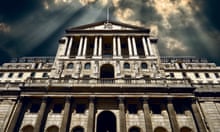Mark Carney will give evidence to the Commons Treasury committee this week and even someone who struggles to know their John Maynard Keynes from their Milton Friedman can guess what will be top of the agenda.
MPs will want to know how the Bank of England plans to respond if the result of voting down the withdrawal agreement negotiated by Theresa May is that the UK leaves the EU next spring in a disorderly way.
Things have moved on since Carney last held forth about Brexit at the Bank’s inflation report press conference this month. On that occasion, the governor said he was still expecting a deal but in the absence of one it should not be assumed that interest rates would be cut. Indeed, the likely inflationary consequences of a falling pound might mean borrowing costs would need to rise.
This raised a few sceptical eyebrows. Most commentators assume that the Bank and the Treasury will do their utmost to minimise the hit to growth in the event of a disorderly Brexit, even if that means temporarily forgetting about inflation and reducing the budget deficit.
For the time being, though, it doesn’t really suit May’s purposes to have Carney tell MPs that he and the other members of the monetary policy committee would do what they did after the EU referendum in 2016 and cut interest rates. What the prime minister needs from the governor’s testimony are headlines of the “Borrowing costs set to soar after Brexit chaos” variety.
May certainly doesn’t want to hear Carney say the Bank has plans to mitigate any disruption to the economy. Ideally, she would have him conjure up the prospect of Brexit being a rerun of Black Wednesday in September 1992, which delivered a blow to the Conservative party’s reputation for economic competence from which it has never fully recovered.
Action in the City last week suggests that the financial markets have yet to factor in such a doomsday scenario. Sure, the pound fell last week and the FTSE 100 has had better weeks, but it could have been a lot worse.
Just consider. In the space of 48 hours, the Brexit secretary resigned, May’s plan was savaged in the Commons, and hardline Conservative MPs were busy trying to muster enough support for a vote of no confidence in the prime minister. There was speculation not only about how May might be replaced as Conservative leader but also of the likelihood of a general election. All of which would normally be expected to give the financial markets a severe case of the heebie-jeebies.
The reaction of the stock market was not quite as benign as it looked at first glance. Companies that book most of their earnings in US dollars enjoy higher profits when the pound goes down on the currency markets, so shares in mining and global energy companies went up. But companies that rely heavily on consumer spending – clothing retailers, for example – suffered due to fears of a twin blow from tumbling confidence and the rising cost of imports.
Yet even with that caveat, it was by no means a bloodbath. The pound steadied at about $1.28 against the dollar, suggesting that the risk of no deal was already priced in by the currency markets. Vicky Redwood, an analyst at Capital Economics, says there would be a further fall in the event of a chaotic Brexit but the decline would be limited because the pound is no longer as overvalued as it was ahead of the EU referendum. Redwood suggests that a fall to $1.20 or $1.15 might be on the cards, which would be modest in view of some of the more pessimistic forecasts of the likely consequences of no deal.
That, though, is just an informed guess. It is quite conceivable that the pound might drop all the way down to parity against the dollar because financial markets tend to operate in one of two modes: complacency and panic. It is in their nature to overshoot.
At the moment, the markets are relatively laid-back. The recent economic news has been unspectacular but far from disastrous and while the City is fearful of Jeremy Corbyn becoming prime minister, there is no guarantee Labour would win a general election even if one were held. What is more, as the possibility of a no-deal Brexit rises, so too does the possibility of Brexit not happening at all.
The lack of serious market mayhem will make it harder for the prime minister to win a Commons vote. As things stand, Labour, hardline Tory Brexiteers, hardline Tory remainers, the DUP, the SNP and the Liberal Democrats will all – for different reasons – vote against the plan. While the business groups that have been lobbying the government for the softest of Brexits from the outset are more than happy with what May has negotiated, it will be MPs who decide whether the plan survives, and the parliamentary arithmetic simply does not stack up for the prime minister.
It is perhaps not hard to see why the prime minister namechecked the former England cricketer Geoffrey Boycott at a Downing Street press conference last week when she was explaining how she would continue fighting for her Brexit deal. Boycott’s determination to occupy the crease was legendary.
But with all due respect to May’s love of cricket, she is looking to the wrong role model. The PM has to hope for a miracle similar to the one that occurred at Headingley in 1981, when all looked lost for England until Ian Botham smashed the Australian bowling to all parts of the ground and set up the most unlikely of victories.










